
April 15

1795 Maria Anna Schicklgruber—grandmother of Adolf Hitler—is born in Strones, Austria. [For further details, Click here.]
Editors Note: It is a childish distortion of the facts to claim that Adolf Hitler himself was ever called "Schicklgruber", although he did acknowledge his good fortune that this was not the case, particularly in view of his chosen career as a politician.
[See: Was Adolf Hitler Jewish?]1874 Birth: Johannes Stark: German physicist, author, Nobel Prize laureate. During the Nazi regime he attempted to become the Fuehrer of German physics through the Deutsche Physik ("Aryan physics") movement (along with Philipp Lenard) against the "Jewish physics" of Albert Einstein and Werner Heisenberg. After Werner Heisenberg defended Albert Einstein's theory of relativity Stark wrote an angry article in the SS newspaper Das Schwarze Korps, calling Heisenberg a "White Jew". In his 1934 book Nationalsocialismus und Wissenschaft (English: National Socialism and Science) Stark maintained that the priority of the scientist was to serve the nation — thus, the important fields of research were those that could help German arms production and industry. He attacked theoretical physics as "Jewish" and stressed that scientific positions in Nazi Germany should only be held by "true" (i.e. pure-blooded) Germans. In 1947, following the defeat of Germany in World War II, Stark received a sentence of four years imprisonment.
1885 Birth: Tadeusz Kutrzeba: Polish general. During the Invasion of Poland in 1939 he commanded Armia Poznan composed of four infantry divisions (14, 17, 25, 26) and two cavalry brigades (Wielkopolska and Podolska). He devised the Polish counterattack plan of the battle of Bzura and commanded Army Poznan and Pomorze. After the siege of Warsaw he was captured by the Germans and spent rest of the war in prisoner of war camps.
1892 Birth: Corrie ten Boom: Dutch author and Holocaust heroine. By 1942 she and her family had become very active in the Dutch underground, hiding refugees. Ten Boom was able to rescue many Jews from certain death at the hands of the Nazi SS. The family's work in saving Jews was motivated by their staunch Christian beliefs. They helped Jews without forcing conversion, and they even provided Kosher food and honored the Sabbath. The Germans arrested the entire ten Boom family on February 28, 1944 with the help of a Dutch informant (Corrie would later discover his name to be Jan Vogel); they were sent first to Scheveningen prison, then to the Vught political concentration camp (both in the Netherlands), and finally to the notorious Ravensbrueck concentration camp in Germany in September 1944, where Corrie's sister Betsie died. Corrie was released in December 1944.[1] In the movie The Hiding Place, Corrie narrates the section on her release from camp by saying that she later learned that her release had been a clerical error: it so happened that the women prisoners her age in the camp were killed in the week following her release. Died this day in 1988.
1911 Volkishness: A Grand Lodge is formed with Theodor Fritsch as Grand Master, but the work of formulating rules and rituals is undertaken by the Wotan Lodge. (THP)
1916 Various:
World War I: List Regiment: Gefreiter Adolf Hitler endures trench warfare in Flanders (Artois) with 3 Company, 16 Reserve Infantry Regiment. [For further details, Click here.]
Mexican War: Official Report on the Mexican Attack at Parral by General Frederick Funston:
Frank Tompkins's column, Troop K, Thirteenth Cavalry, and Troop M, Thirteenth Cavalry, entered Parral 11 a.m., 12th instant. Proceeding was cordially received by higher civil and military authorities. Military Commander General Lozano accompanied Major Frank Tompkins on way to camp. In the outskirts of the town groups of native troops and civilians, following, jeered, threw stones, and fired on column. Major Frank Tompkins took defensive position north of railroad, but was soon flanked by native troops and forced to further retire. About 300 Carranza troops joined in pursuit, and Major Frank Tompkins continued to withdraw to avoid further complications until he reached Santa Cruz, eight miles from Parral. Fighting ceased about fifteen miles from town. Major Frank Tompkins deserves great praise for his forbearance. General Lozano attempted to control his men when fight first began, but failed to. Colonel Brown, with Major Charles Young, Tenth Cavalry, squadron of Tenth Cavalry, eight miles away when notified, and joined Major Frank Tompkins 7 p.m. Reported privately forty Mexicans killed, all soldiers, including one major. One civilian wounded. Americans killed, two; wounded, six; missing, one. Major R. L. Howze, Eleventh Cavalry, arrived Parral yesterday from San Berja and Ballesea, having had several skirmishes with Villa men. One man killed, two wounded.
1917 World War I: Various:
List Regiment: Gefreiter Adolf Hitler's 16 Reserve Infantry Regiment, 3 Company, fortify trenches near Arras. [For further details, Click here.]
Arras: British advance near Arras is halted.

Woodrow Wilson: Following his address to Congress on 2 April 1917, and a formal US declaration of war four days later, the US President issues a proclamation to the American people:
The entrance of our own beloved country into the grim and terrible war for democracy and human rights which has shaken the world creates so many problems of national life and action which call for immediate consideration and settlement that I hope you will permit me to address to you a few words of earnest counsel and appeal with regard to them. We are rapidly putting our navy upon an effective war footing and are about to create and equip a great army, but these are the simplest parts of the great task to which we have addressed ourselves. There is not a single selfish element, so far as I can see, in the cause we are fighting for. [For the full text, Click here.]
1918 World War I: Various:
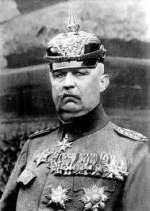
British evacuate Passchendaele Ridge:
With the Germans, in the throes of a major spring offensive on the Western Front, hammering their positions in Flanders, France, British forces evacuate Passchendaele Ridge, won by the Allies at such a terrible cost just five months earlier, on April 15, 1918.
Under the command of Erich von Ludendorff, the German army launched "Operation Georgette," the second phase of their first major offensive on the Western Front for more than a year, on April 9, 1918, near the River Lys in Flanders. In the first days of the attack, the Germans regained the momentum they had lost at the end of March, when the Allies halted the first phase of the attacks at Moreuil Wood and around Amiens, France. Storming ahead against the British and Portuguese divisions at the Lys (one Portuguese division was so overwhelmed it refused to go forward into the trenches after the initial bombardment), German forces advanced quickly as panic swept down the Allied lines of command.
On April 15, less than a week after Georgette began, the British were forced to evacuate Passchendaele Ridge, an area that had seen heavy bloodshed the previous fall, during the Third Battle of Ypres. That battle had ended in the Allied capture of Passchendaele on November 6, 1917, but only at the cost of 310,000 British casualties, compared with 260,000 on the German side. In addition to Passchendaele, the Germans gained control of Messines Ridge, the scene of another important Allied victory in June 1917, before the Allied defenses hardened and Ludendorff shut down the Georgette operation on April 29, 1918. (History.com)
List Regiment: Gefreiter Adolf Hitler's 16th RIR constructs fortified works in difficult defensive positions on an active front with German assault regiments near Fountaine (Montdidier). [For further details, Click here.]
1919 Weimar: Hoffmann and his Social Democrats, who had failed to build a counterrevolutionary army at Bamberg, request the aid of Von Epp and several other Free Corps groups. Their anti-Republican sentiments had already led to their being banned in Bavaria.
1922 Weimar: Secret negotiations between the German and Soviet delegations begin at 2AM. (THP)
1926 Volkishness: Schmude dissolves the ONT priory at Hollenberg, complaining of the adverse economic circumstances in Germany. (THP)

1938 Spanish Civil War: General Francisco Franco's forces capture Vinaroz.
1938 Antisemitism: Poland: Starting in Dabrowa, hundreds of Jews are injured and much property destroyed during anti-Jewish attacks in Poland. (Atlas)
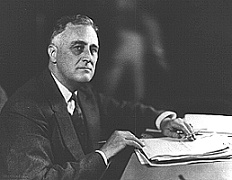
1939 President Roosevelt appeals to both Hitler and Mussolini for assurances against any further aggression, telling them both there is no need for war and to respect the independence of other nations, specifically naming thirty-one countries in Europe and the Near East. Soon afterward Hitler will ridicule Roosevelt during a speech to the Reichstag by sarcastically reiterating the thirty-one nations listed in Roosevelt's appeal. The Reichstag will burst into laughter at the seemingly endless list.
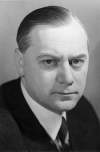
1939 Holocaust: Alfred Rosenberg opens the Institute of the Nazi Party for Research into the Jewish Question (Institut der NSDAP zur Erforschung der Judenfrage).
1940 World War II: Various:
Reich Foreign Minister (Ribbentrop) to German Ambassador in the Soviet Union (Schulenburg):

I request that you explain to Herr Molotov our attitude toward Sweden as follows: We share completely the attitude of the Soviet Government that preservation of Sweden's neutrality corresponds both to German and to Soviet interests. As you already told him on transmitting our memorandum on April 9 and repeated during the conversation of April 13, it is not our intention to extend our military operations in the north to Swedish territory. On the contrary, we are determined to respect unconditionally the neutrality of Sweden, as long as Sweden in turn also observes strict neutrality and does not support the Western powers.
Norway: The Allies start their attack on the Norwegian town of Narvik which is occupied by Nazi Germany. Quisling is forced out by the Germans and replaced temporarily by Ingolf Christensen as the head of a German controlled puppet government of Norway.
1941 World War II: North Africa:
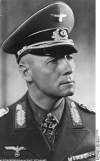
By mid-April, Rommel has reconquered all of Libya except Tobruk. His exploits earn him the nickname "the Desert Fox." [See: The Mediterranean Strategy.]
1942 World War II: The George Cross—Britain's highest accolade for civilian gallantry—is conferred on Malta by King George VI for bravery in withstanding Italian and German attacks.
1943 World War II: Various:
Belgium: An Allied bomber attack misses the Minerva automobile factory and hits the Belgian town of Mortsel instead, leaving 936 dead civilians in its wake. General Ismay to Churchill:
The Chiefs of Staff feel that you should be made aware of reports of German experiments with long-range rockets. The fact that five reports have been received since the end of 1942 indicates a foundation of fact even if details are inaccurate.
In response to the threat, Churchill will appoint his son-in-law, Duncan Sandys, as Chairman of a War Cabinet Committee (the 'Crossbow' Committee) for defense against German flying bombs and rockets. (Ismay, Kilzer) [See: Wunderwaffen: Hitler's Deception and the History of Rocketry.]1944 World War II: Various:
Soviets capture Tarnopol in Poland:
On this day in 1944, the Soviet Red Army occupies Tarnopol, one of the principal cities of Eastern Galicia, across the former Polish border.
Tarnopol, traditionally a part of Poland, then part of the Soviet Union, had become German-occupied territory in the great German offensive eastward in June 1941. One hundred and eighty Jews were shot in Tarnopol early in the German occupation; tens of thousands of Polish Jews would be slaughtered as German forces occupied larger swaths of the former eastern Poland. The Red Army naturally represented liberation for the Jewish survivors of German totalitarianism—although, Jews would eventually find their communist liberators to represent a totalitarianism of another stripe. (History.com)
War against Japan: U.S. plans Operation Wedlock—an invasion of the Kurile Islands of northern Japan. American and Canadian troops, aided by the Ninth Fleet and American bombers ordered to bomb the islands every day, prepare to occupy the islands long disputed between Japan and Russia. The plan was a fiction. There was no invasion—or a Ninth Fleet. It was all a ruse to divert Japanese attention away from the Marianas Islands, the Allies' true target. Operation Forager, the real thing, was launched on June 15, 1944, with a landing on Saipan, one of the three Marianas Islands. It was a U.S. success, resulting in the deaths of thousands of Japanese—both from combat and ritual suicide—including that of the Japanese commander, Lieutenant General Yoshitsugu Saito. (History.com)Holocaust: Hungary: Tens of thousands of Jews are forced to leave their homes, and move into specially designated ghetto areas. (THP) [See: Was the Holocaust Detrimental to Hitler's War Effort?]
1944 Holocaust: Lithuania: A group of prisoners, assigned the task of destroying evidence of mass murder at Ponary, try to escape. 25 are killed outright, 15 get away. Five days later, the remaining 40 members of the unit are killed. (THP)
Death: Giovanni Gentile: self-proclaimed philosopher of Italian Fascism and the major figure in the rise of Hegelian thought in Italy.
1945 World War II: Various:
Stalin to Churchill:

In President Roosevelt the Soviet People saw a distinguished statesman and an unswerving champion of close cooperation between the three states. The friendly attitude of President Franklin Roosevelt to the USSR will always be most highly valued and remembered by the Soviet people. So far as I personally am concerned I feel exceptionally deeply the burden of loss of this great man, who was our mutual friend.
Eden (Washington) to Churchill:

The Ambassador and I had a talk with Stettinius shortly after my arrival this morning. Stettinius said that both Stalin and Molotov had shown signs of being deeply moved by the Presidents death. Stalin asked Harriman whether there was any contribution he could make at a moment like this to assist to promote the unity of the great Allies. Stettinius said that unfortunately Harriman had not at once replied Poland, but instead had suggested that it would be a good thing if Molotov could come to San Francisco for the Conference. Stettinius had seized on this, and telegraphed urging not only that Molotov should come to San Francisco, but also he should come to Washington first for conversations. An hour ago Stettinius rang me up to say that the Russians had agreed to this course and that Molotov was coming by American aircraft which had been sent to bring him. I suppose therefore that he will be here by Tuesday, when I plan that we should embark upon the Polish issue.
Churchill to Truman:
I have just read the draft joint message which you propose we should send to Stalin. In principle I am in complete agreement with its terms . . . . I strongly agree with you that our reply is of high urgency. Moreover, it is important to strike the note of our unity of outlook and of action at the earliest moment.
Holocaust: Bergen-Belsen concentration camp is liberated by British and Canadian forces, who discover the unburied corpses of 10,000 inmates. Most have died of starvation. There had been no food or water for more than five days, and evidence of cannibalism is found. Even after the liberation, an average of 500 die each day of typhus and starvation for more than a week. (THP)
Holocaust: Death Marches: As the Allied armies draw together, 17,000 female inmates and 40,000 men are marched westward by the Germans from Ravenbrueck and Sachsenhausen. Many hundreds die of exhaustion and hundreds more are shot by the wayside. (THP)
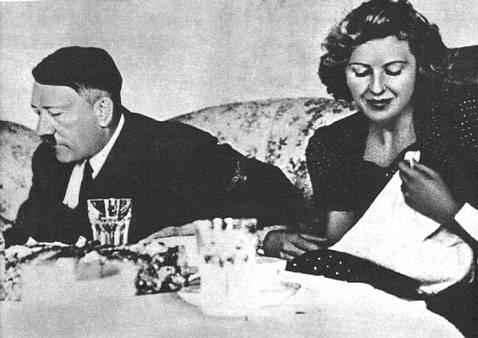
Eva Braun moves into the Fuehrerbunker.
[See: The Last Days of the Third Reich.]1946 Nuremberg Tribunal: Ernst Kaltenbrunner's defense calls Rudolf Franz Ferdinand Hoess, commandant of Auschwitz, to the stand
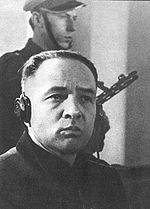
In the summer of 1941 I was summoned to Berlin to Reichsfuehrer SS Himmler to receive personal orders. He told me something to the effect—I do not remember the exact words—that the Fuehrer had given the order for a final solution of the Jewish question. We, the SS, must carry out that order. If it is not carried out now then the Jews will later on destroy the German people. He had chosen Auschwitz on account of its easy access by rail and also because the extensive site offered space for measures ensuring isolation. [For the full text, Click here.]
Nuremberg Tribunal: The court listens in silence to the horrible testimony of Rudolf Hoess concerning millions murdered. Only Hermann Goering and Karl Doenitz manage a comment later: Both remark that Hoess is obviously a South German; a Prussian could never have done such things. Astonished by his matter-of fact apathy, Dr. Gilbert, the Nuremberg Prison psychologist, questions Hoess on the subject:
Hoess: Don't you see, we SS men were not supposed to think about these things; it never occurred to us. And besides, it was something already taken for granted that the Jews were to blame for everything . . . It was not just newspapers like 'Stuermer' but it was everything we ever heard. Even our military and ideological training took for granted that we had to protect Germany from the Jews . . . . We were all so trained to obey orders without even thinking that the thought of disobeying an order would never have occurred to anybody. (Gilbert, Tusa)
Nuremberg Tribunal: Kaltenbrunner's defense calls Hermann Neubacher, the pre-war Mayor of Vienna, Austria, to the stand:
Dr Kauffmann: Kaltenbrunner was called the successor of Heydrich. Does this apply to him in the full sense of the word?
Neubacher: It cannot, and that I know because . . .
The President: That's a matter of argument. This witness' opinion cannot affect the position of Kaltenbrunner. This witness cannot testify whether he was called a successor to Heydrich or another Heydrich.
Dr Kauffmann: The Prosecution speak in a disdainful way that Kaltenbrunner was the successor of the ill-famed Heydrich. This witness knows them both, therefore I believe . . .
The President: The witness has already admitted that he was the successor of Heydrich. You may ask him if he was another Heydrich.
Dr Kauffmann: Please, will you tell whether he was called a second Heydrich?
Neubacher: Himmler himself used this expression . . . [For the full text, Click here.]
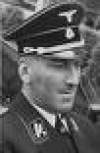
From The Anatomy of the Nuremberg Trials by Telford Taylor:
Tall and lantern-jawed, face pockmarked and scarred, the defendant was the most ominous-looking man in the dock and had no friends there. Rebecca West wrote that he 'looked like a vicious horse.' But despite his sinister visage, Kaltenbrunner was, like his fellow Austrian Seyss-Inquart, a well-educated lawyer.
Kauffmann followed the example of Dr Nelte and Keitel by confronting Kaltenbrunner with one after another of the criminal events with which the prosecution had targeted his client. Relying heavily on the limits of his responsibility as he had described them, Kaltenbrunner denied guilt for each and every event. Of some, he had never heard; in others, he had not been involved; if the document bore his typed signature, someone else had put it there without his knowledge; if the signature was handwritten, it had been forged . . . . Kaltenbrunner asserted that he had only once visited a concentration camp (Mauthausen), denied that he ever saw a gas chamber, and denied virtually everything else that Kauffmann put to him . . . . Kauffmann called as a witness Rudolf Franz Ferdinand Hoess, who had been Commandant of Auschwitz . . . .
It is beyond understanding that Hoess was put on the witness stand not, like Ohlendorf or Bach-Zelewski, by prosecution counsel but by the defense. Considering the broad range of Kaltenbrunner's activities, there was little to be gained by attempting to prove that he had never been to Auschwitz and never personally signed a death order there. The consequences were not limited to Kaltenbrunner. The awful scale of the Nazi terror—produced by a Fuehrer to whom the defendants had pledged and given their allegiance, and by Himmler, Heydrich, Pohl, Mueller, and other leaders of the Nazi government—cast a pall of shame over the defendants and their counsel.
1948 Death: Radola Gajda: Czech military commander and politician. During March 1939 the Czechoslovakian political scene was in state of turmoil. Several coups were attempted, one in anticipation of making Gajda the new head of state. These amateurish coups ended in fiasco and several days later the remaining Czech lands were occupied by Nazi Germany. Gajda was marginalized during the occupation and abandoned politics. He occasionally assisted the Czech resistance by helping army officers to flee into Poland and by hiding the resistance activities of his son. He was investigated by the Gestapo but avoided imprisonment. When World War II ended Gajda was imprisoned by the NKVD (May 12, 1945) and interrogated under harsh conditions (he lost his eyesight while jailed). In April 1947 he was brought to trial for "propagation of Fascism and Nazism," for which the prosecutor requested a life sentence. Gajda's guilt was far from clear and the resulting sentence of two years allowed him to leave prison shortly thereafter. Penniless and forgotten, he died several months later. During the communist era (1948-1989) Gajda, as a legionnaire and fascist, was ignored by official historiography and is practically unknown in Czech Republic and Slovakia today.
1955 Wunderwaffen: Wernher von Braun, his wife and children, and 40 other German rocket scientists and their families—103 people in all—become American citizens, in a ceremony in the Huntsville High School auditorium.
Werner von Braun:This is the happiest and most significant day of my life. I must say we all became citizens in our hearts long ago. I have never regretted the decision to come to this country. As time goes by, I can see even more clearly that it was a moral decision we made that day at Peenemuende. (Piszkiewicz)
1985 Neo-Nazis: Seattle: US officials in Seattle indict 23 members of a neo-Nazi group for robbery and murder. 10 gang members later are convicted and sentenced to 40 to 100 years in prison. [See: Can We, and Should, We Try to Explain the Holocaust?]
1998 Pol Pot dies: The architect of Cambodia's killing fields, dies of apparently natural causes while serving a life sentence imposed against him by his own Khmer Rouge. (History.com)
Edited by Levi Bookin (Copy editor) Click to join 3rdReichStudies Disclaimer: This site includes diverse and controversial materials--such as excerpts from the writings of racists and anti-Semites--so that its readers can learn the nature and extent of hate and anti-Semitic discourse. It is our sincere belief that only the informed citizen can prevail over the ignorance of Racialist "thought." Far from approving these writings, this site condemns racism in all of its forms and manifestations.
levi.bookin@gmail.com










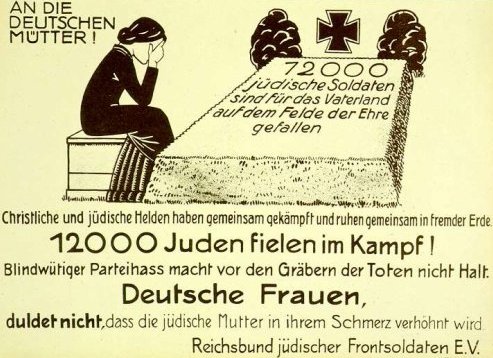
Fair Use Notice: This site may contain copyrighted material the use of which has not always been specifically authorized by the copyright owner. We are making such material available in our efforts to advance understanding of historical, political, human rights, economic, democracy, scientific, environmental, and social justice issues, etc. We believe this constitutes a "fair use" of any such copyrighted material as provided for in section 107 of the US Copyright Law. In accordance with Title 17 U.S.C. Section 107, the material on this site is distributed without profit to those who have expressed a prior interest in receiving the included information for research and educational purposes. If you wish to use copyrighted material from this site for purposes of your own that go beyond 'fair use', you must obtain permission from the copyright owner.
Please Note: The list-owner and the moderator of 3rdReichStudies are not responsible for, and do not necessarily approve of, the random ads placed on our pages by our web server. They are the unfortunate price one pays for a 'free' website.



